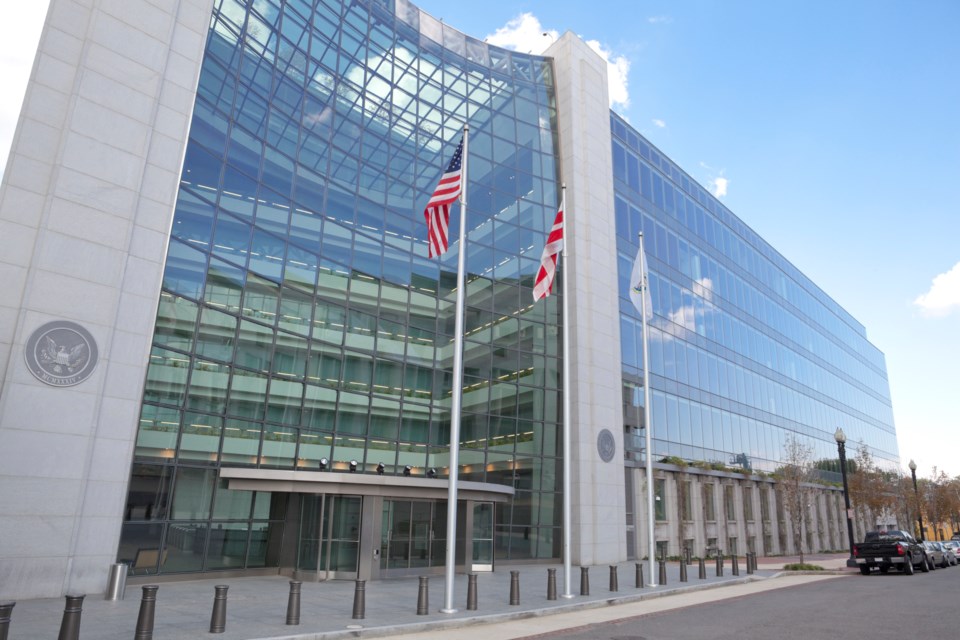Vancouver businessman Graham R. Taylor has agreed to pay the U.S. Securities and Exchange Commission (SEC) nearly US$5 million following a settlement in which he neither admits nor denies his role in an alleged widespread billion-dollar penny stock fraud case orchestrated in B.C.
The U.S. District Court for the District of Massachusetts entered final judgments by consent against Taylor, and American stock promoter William Kaitz, on Feb. 16, according to an SEC statement Feb. 21.
Taylor was alleged to be an associate of West Vancouver resident Frederick Sharp, a former lawyer turned offshore shell facilitator alleged by the SEC of being the “mastermind” of a pump-and-dump scheme.
The SEC claimed Sharp's close associates, known as the "Sharp Group," worked with others, such as Taylor, to surreptitiously promote over 100 U.S. companies only to illegally sell insider shares into the U.S. markets. This was allegedly done via a network of offshore accounts controlled by the group and beneficially owned by the company insiders.
In civil proceedings from the SEC, Taylor was charged with aiding and abetting in the alleged fraudulent scheme and was said to have specifically worked closely with former Vancouver cannabis company executive Avtar Dhillon.
The SEC complaint states, for example, how Dhillon completed a reverse takeover of a U.S. company called Stevia First, garnering tens of millions of shares under his control only to allegedly sell millions of them illegally by failing to disclose his beneficial ownership interest nominee companies arranged by Taylor.
In 2012, the Sharp Group remitted wire payments, “all funded by Stevia First stock-sale proceeds, and totalling over $4.2 million, to Swiss bank account of an offshore front company that Taylor controlled; and Taylor, in turn, promptly transferred over 60% of that money to Dhillon," the complaint alleged.
The 91-page complaint outlining transactions for just four companies shows Taylor using an unnamed Canadian law firm trust account to move $65,000.
And, to allegedly "obfuscate his role in the scheme," Taylor "signed a fraudulent and backdated Option Agreement that purported to justify his payments to Dhillon as purchases of interests in a parcel of land owned by Dhillon."
Dhillon has admitted to criminal stock fraud charges against him and awaits sentencing in April, according to the latest court filings viewed by Glacier Media. Dhillon, a resident of California, could receive a prison term of 63 to 78 months in a federal prison.
Sharp has already received a default judgment in the related civil case against him and faces action from the SEC to recover assets in Canada. Sharp still faces criminal charges for the civil offences raised by the SEC.
Taylor's judgment orders him to pay disgorgement of US$3,432,412, prejudgment interest of US$1,285,272, and a civil penalty of US$207,183.
Taylor’s judgment sees the SEC draining the entire balance from Taylor’s three Haywood Securities accounts as well as the entire balance from five PI Financial Corp. accounts. It’s unclear how much money is in those accounts, according to the settlement document.
Taylor also receives a sweeping ban from any penny stock trading (the SEC defines a penny stock as one that is traded for less than five dollars).
Taylor, the judgment states, “is permanently barred from participating in an offering of penny stock, including engaging in activities with a broker, dealer, or issuer for purposes of issuing, trading, or inducing or attempting to induce the purchase or sale of any penny stock.
According to the complaint, Kaitz worked as a promoter and touted stocks that the group simultaneously planned to sell, while concealing their true involvement, noted the SEC.
Sharp was recently banned from B.C. markets by the B.C. Securities Commission, which can apply reciprocal bans, based on U.S. court rulings.




